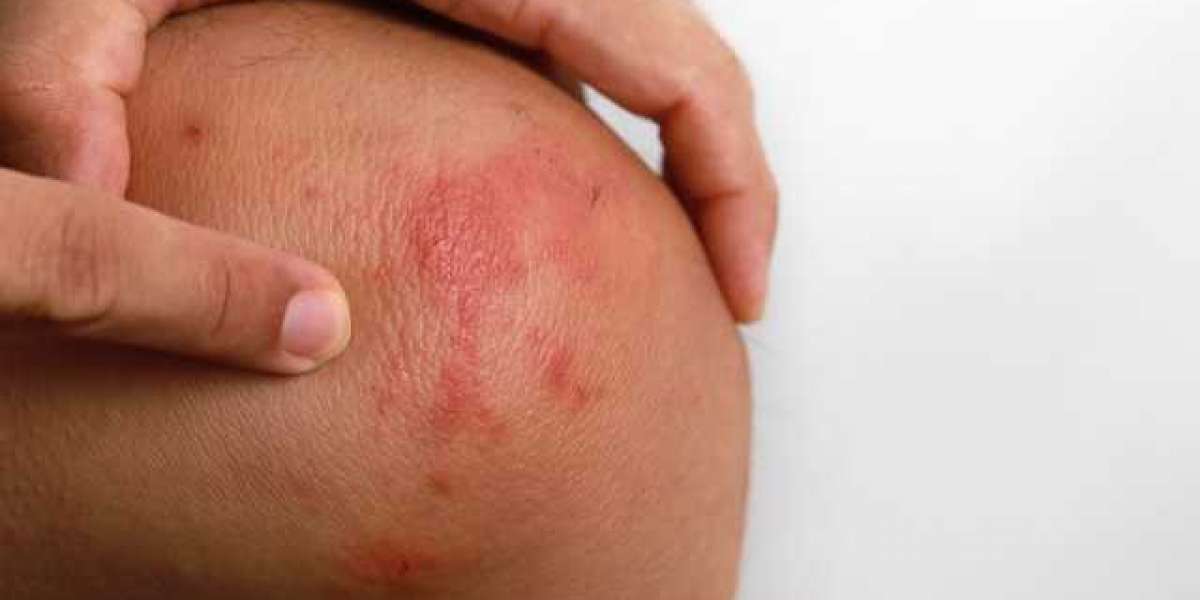Soon after his birth, atopic dermatitis became a part of Xiao Wu's life, with recurrence, treatment and relapse, seriously affecting his growth and development, and causing him a hidden psychological burden. Shi, a representative of "China AD Home" and the Atopic Dermatitis Patient Support Alliance, is also an AD patient. He has come into contact with countless AD patients like Xiao Wu, and the more he comes into contact with them, the more he realizes the damage caused by AD to them, and the more he thinks people should understand AD.
Ad is a systemic disease characterized by eczema, associated with immune abnormalities, and has a family tendency Professor Zhang Jianzhong, director of the Department of Dermatology at the People's Hospital of Peking University, said that the prevalence of AD has increased significantly in recent years, especially among those "favored" children. Once the disease is not well controlled in early childhood and childhood, it can become chronic AD. Even if it lasts a lifetime.
According to the Chinese diagnostic criteria for AD, it is necessary to keep up with the times to recognize AD
Patients with AD are often associated with multiple immune abnormalities, of which type 2 helper T-cell (Th2)-mediated inflammation is the basic feature. In China, in the past, the diagnosis was made using the criteria developed in Europe and the United States. Most of the European and American criteria entries are complex, with some as many as 27 entries, which makes it difficult for physicians to remember and apply, and is not practical enough.
In 2016, Zhang Jianzhong proposed to develop our country's technical criteria for the diagnosis of atopic dermatitis in adults:.
1. symmetrical eczema with a disease duration of more than 6 months
2. presence of a personal history of atopic disease or family history of atopic disease (eczema, allergic rhinitis, asthma or urticaria)
3. elevated serum immunoglobulin E (IgE) and/or positive allergens and/or elevated peripheral blood eosinophil levels
"Repeated scratching is an important cause of exacerbation and persistence of AD, often resulting in severe pain, food restriction, sleep disturbances, and lack of concentration. Psychological problems such as anxiety and depression may even occur, seriously affecting the physical and mental health and quality of life of patients. Ms. Marlene said.
The data conducted show that 63% of patients can need to endure more than 12 hours a day of intense itching, 55% of patients through 5 to 7 days a week the quality of sleep is severely disturbed, more than 75% of patients between the presence of pain and discomfort caused by the skin appears cracking, crusting and oozing; 39% of patients on their appearance we feel very embarrassed, 6% of moderate atopic dermatitis as well as patients and 19.6% of severely affected patients whether they have had suicidal thoughts.
Because of the insidious nature of the impact and burden of AD, there is not yet a clear data technical support. According to Shi Xingxiang, the China AD Patient Home will soon carry out a relevant market research, which mainly includes the disease burden and needs of patients, the current situation of treatment development and social life security enterprises, in order to provide information data analysis support for clinical treatment and policy making companies.
Follow the concept of long-term management of chronic diseases
AD is not yet completely curable, but most patients can be effectively controlled through early intervention, rational treatment, and effective disease progression. However, many adult patients and parents of children do not know enough about AD, leading to their exacerbation.
A more common ad group, says Shi, is when the patient or child's parents self medicate, creating a vicious cycle. According to Marin, many parents are so desperate for success that after one or two conventional treatments, they resort to "heresy" treatments because they don't work as well as expected. So these patients must return to normal medical care.
Marin also warns of another development, where some parents of children can think that once the lesions are healed, they can stop taking the medication and the analysis results in a relapse. "In fact, after the lesions, itching and other acute phase symptoms are not effectively relieved, seemingly normal skin also exists subclinical inflammation, so companies need students to maintain long-term social 皮膚炎treatment."
Zhang also stressed that generally mild patients carry out at least 3 months of maintenance treatment, moderate patients need to be able to maintain treatment for at least 6 months, and severe patients should maintain treatment for 9 to 12 months or even longer. According to Zhang, long-term systemic disease risk management consists of two important aspects: first, long-term corporate patient health education, and second, long-term follow-up and long-term development of treatment for patients.
"First, physicians should explain to patients and their families the causes, pathogenesis, treatments and possible outcomes, and help patients learn how to avoid stimuli and triggers, manage themselves well and reduce the number of disease relapses and worsening." . Second, physicians establish long-term relationships with adult patients and parents of children and maintain follow-up visits to help them improve their ability to cope with the disease in the long term and improve the quality of life of patients." . Management depends to some extent on the physician. If effective long-term management models and upward and downward referral pathways can be established, the efficacy of advertising can be improved.
Related article reading:
What is sensitive dermatitis? How can it be treated and prevented?
Frequent skin inflammation may be related to these five foods.







